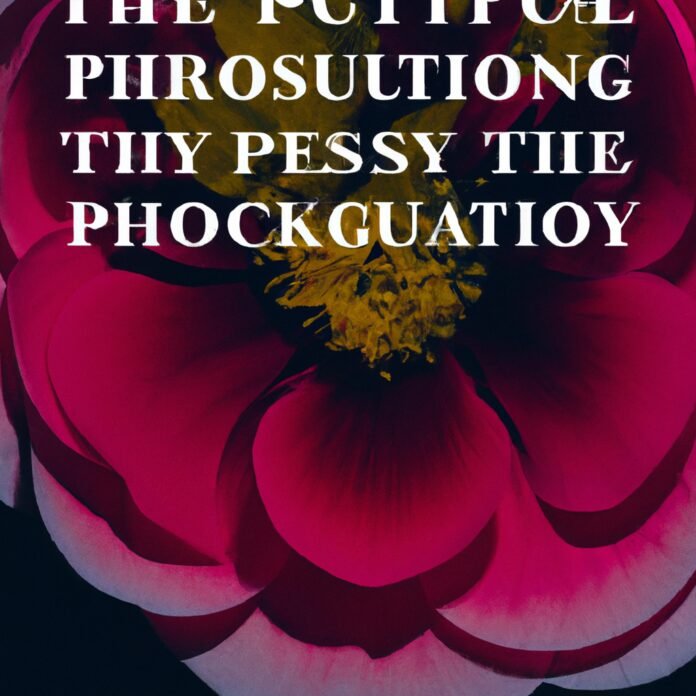In a world obsessed with beauty, it would seem that compliments and aesthetics go hand in hand. But, what lies beneath this obsession? In this article, we’ll explore the psychology behind the power of compliments, and how it affects our understanding of beauty.
1. Unlocking the Power of Positive Reinforcement Through Compliments
Compliments can be an incredible tool for achieving positive reinforcement, but they’re often underutilized. People often feel uncomfortable paying compliments to others, or reluctant to go out of their way to brag about their achievements. The reality is, compliments provide a simple yet effective way to make someone feel good about themselves, which in turn encourages them to work harder and go further.
Here are a few benefits of using compliments as a form of positive reinforcement:
- Compliments provide clarity on the outcome of our efforts. When someone tells us that they appreciate our hard work, it gives us a clear sense of satisfaction and encourages us to aim higher.
- Positive reinforcement through compliments reinforces the idea that individual effort pays off. It reminds us that our hard work does not go unnoticed.
- Compliments subtly suggest certain patterns of behavior. Such as when someone commends us for being particularly diligent, it can inspire others to strive for the same.
So many of us don’t understand the power of positive reinforcement, but it’s invaluable in cultivating self-esteem and motivation. When used deliberately, compliments have the potential to act as a driving force that propels us to go further.
2. Exploring the Physical and Mental Benefits of Receiving Compliments
When someone kindly compliments us, we often feel uplifted and our self-esteem may be improved. But what most people don’t realize is that the benefits of receiving compliments are actually quite profound. Positive feedback can enhance our physical and mental wellbeing in several ways.
Physical Benefits
- Receiving compliments activates positive hormones like serotonin, oxytocin, and dopamine, which can enhance our feelings of physical wellbeing.
- These hormones can also lower levels of physical pain making us feel a bit like we are “floating.”
Mental Benefits
- The power of a kind comment can help to quell feelings of anxiety and help us to exist more in the present moment.
- Initiating small talk can give us a boost of confidence that helps us feel more at ease in social situations.
- The feeling of affirmation that comes from a compliment can also solidify our sense of identity and help us feel more secure and capable.
All in all, the power of kind words can be a great source of healing and comfort. Taking the time to sincerely compliment someone can go a long way in terms of making them – and yourself –feel good!
3. Analyzing the Connection Between Compliments and Beauty
Most people enjoy receiving compliments, and a compliment about one’s attractiveness can be particularly gratifying. It is natural to assume that compliments about beauty have an influence on people’s self-perception. Studies suggest that a positive reaction is, indeed, the case.
Receiving compliments for beauty has been found to promote positive feelings. This may be because feeling attractive can bring about a sense of self-assurance, which in turn leads to the experience of other pleasant emotions, such as joy and confidence. Of course, people’s perception of beauty is highly personal. The kinds of compliments that have an impact on self-image can vary greatly depending on the individual.
At the same time, research has found that over-reliance on compliments about beauty can have negative consequences. Specifically, it can produce an overreliance on others’ validation of one’s attractiveness. This puts pressure on an individual to adhere to beauty standards set by others, eroding self-acceptance in the process. It is important, then, to be mindful of the power of beauty-related compliments.
- Compliments about beauty can be gratifying, promoting positive feelings
- Perceptions of beauty vary greatly depending on the individual
- Over-reliance on compliments about beauty can have negative consequences, such as an over-reliance on others’ validation of one’s attractiveness
4. Discovering the Intricacies of Complimenting Others
When it comes to complimenting others, most people don’t think there’s much to learn. After all, it’s just a little flattery or a few kind words, right? Not quite. There’s much more to taking the time to truly appreciate others. Here are 4 essentials to complimenting others that will make your intentions more effective:
- It should have meaning: Compliments need to be earned. Though your words could be sincere, if they’re hollow gestures, they’ll inevitably fall flat. Take the time to get to know the person so you can pinpoint something truly special about them that you admire. Or, if it’s someone you don’t know that well, focus on their actions.
- Be specific: It’s so much more meaningful to give someone a specific compliment than a more generalized one. Describing exactly why something about your conversation partner is special shows that you’ve taken the time to really notice them.
- Explain why it matters to you: It’s one thing to simply tell someone you admire a skill or ability, but it’s much more meaningful to explain why it matters to you. Let your friend know that this quality resonates with you because of a personal experience or a shared interest.
- Show your support: A compliment isn’t just about recognition, it’s also about appreciation. Let the person know that you stand with them and that you’ve taken notice of their efforts. Express your support so they can begin to identify it (and recognize it) as a valuable resource.
Complimenting others may not seem like a complex endeavor, but making your flattery stand out for the right reasons will take some thought and care. Show others you value them by recognizing someone’s admirable traits in a meaningful and memorable way.
5. Interpreting the Various Roles of Compliments in Everyday Life
Compliments are all around us in everyday life. Whether it’s your boss applauding your work, a friend helping you feel better about your appearance, or the cashier at the grocery store wishing you a great day, compliments come in many forms. But what do they actually mean? How do they help us? In this section, we’ll explore the various roles of compliments in our lives.
1. Emotional Boosters — Compliments can be a great way to boost your own or someone else’s emotions. Not only do they make the receiver feel great, they also show them that they are appreciated and valued. This can be especially helpful in times when extra encouragement is needed.
2. Building Connections — A simple compliment can often act as a bridge between two people, allowing them to connect on levels much deeper and more meaningful than the standard, everyday conversation. For instance, a friend might compliment you on a piece of writing, and this can lead to a deeper discussion about the topic at hand.
3. Support System — A compliment can provide the kind of support you may need when you’re going through a tough time. Whether it’s a compliment on your looks or a pat on the back for your hard work, the kind words can be just what you need to get back up on your feet.
4. Customer Service — In a customer service setting, compliments can be used to help put the customer at ease. For instance, a waiter in a restaurant might say something nice about the customer’s clothing, or a gas station attendant might notice the customer’s car and make a comment about it. This can be a great way to add a personal touch to customer service.
At the end of the day, compliments can serve many purposes. Whether it’s a boost of motivation or just a simple act of kindness, they can help us make connections and foster a sense of support an appreciation within our environment.
When we receive a compliment, whether it’s about our brains or our beauty, it can boost our self-confidence and give us an emotional lift- just like a bouquet of flowers on a special day. Ultimately, the power of a compliment lies in its ability to make us feel seen, accepted, and valued. It’s a reminder that we are someone worth recognizing.



